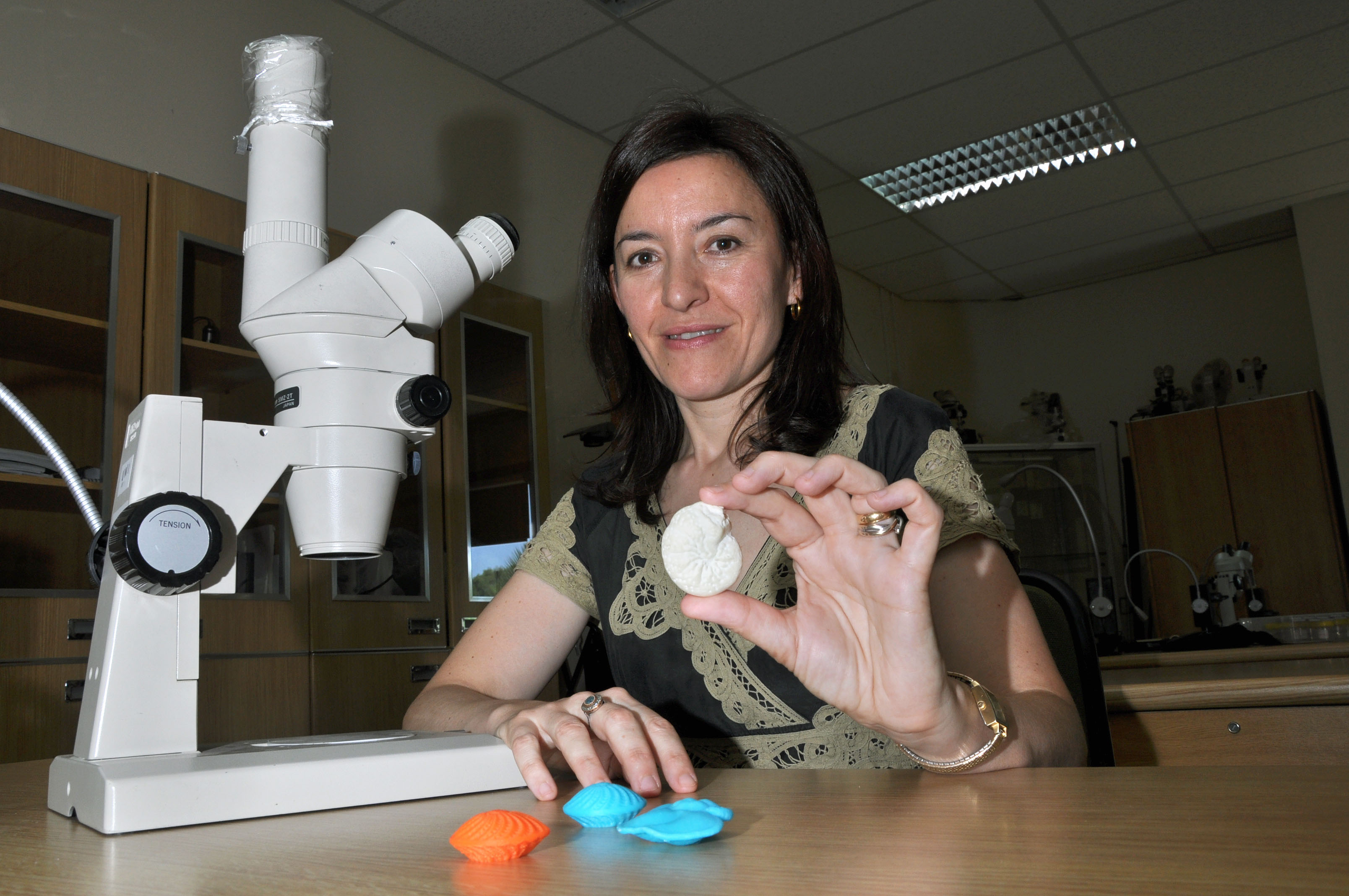
Journey to the “hidden continent” beneath the Pacific waves
Researcher Laia Alegret, holder of a Leonardo grant from the BBVA Foundation, is the sole Spanish representative aboard the first oceanographic expedition to explore Zealandia, the “eighth continent” below the waters of the Pacific Ocean. Her project will help predict the consequences of today’s climate change by studying global warming during the Paleogene period, more than 50 million years ago.
25 July, 2017
‘In Search of the Lost Continent’ may sound like the title of a work of fiction, but it precisely describes the mission of this soon-to-be-launched international campaign. Some 30 scientists from 12 countries will investigate Zealandia, a vast terrain whose only unsubmerged points are New Caledonia, New Zealand and a few Pacific islands, with the rest hidden below the ocean waters. The sole Spanish researcher on board is paleontologist Laia Alegret, holder of a Leonardo grant from the BBVA Foundation. Her studies of microfossils will provide clues to predict the eventual consequences of today’s climate change.
The oceanographic vessel ‘Joides Resolution’ will sail on July 28 from the port of Townsville, in northeast Australia. For two months, the research team on this latest expedition of the International Ocean Discovery Program (IODP) will sail the Coral Sea and Tasman Sea, drilling for samples in the ocean floor. The project Alegret will pursue with the Leonardo grant will not only help test the hypothesis that Zealandia is in fact a continent, it will also teach us something of what Earth’s climate was like 50 million years ago in the Paleogene, an era so hot that “there were crocodiles and water lilies in the Arctic,” Alegret relates.
Knowing what happened then will help to predict the consequences of today’s climate change, which Alegret is quick to describe as “extremely worrying because warming is happening much faster than in the past; if a greenhouse gas emissions rate far lower than today’s caused what we observe in the Paleogene, I hardly dare think what we might soon be suffering. And it is us who are causing it.”
Laia Alegret Badiola (Huesca, 1975) is a paleontologist specializing in microfossils and paleoclimate. She is currently a tenured professor in the Department of Earth Sciences at the University of Zaragoza. She won her place on the expedition in competition with other candidates – “I was lucky because they wanted someone with exactly my specialist profile”– and not because Spain was a member of the program. As a rule, the number of researchers of each nationality on the 12 million euros expedition is in proportion to their country’s budget contribution, and Spain does not pay enough to ensure even one place. Alegret was invited onto the project due to her high-impact research and involvement with the most active teams at international level.
Alegret obtained a bachelor’s degree and PhD from the University of Zaragoza. After occupying a post-doctoral post at University College London from 2003 to 2005, she returned to Zaragoza in 2005 under a Ramón y Cajal contract, and has held her current position there since 2010. She has taken part in seven national research projects and three at international level – besides the Zealandia project – led by such prestigious institutions as the Massachusetts Institute of Technology (MIT).
She has also completed research stays at centers in the United States, Cuba, Mexico, Tunisia, Italy and Poland. Among the offices she holds on international scientific committees is that of Vice-Chair of the International Subcommission on Paleogene Stratigraphy, IUGS-UNESCO, whose responsibilities include agreeing the nomenclature of the planet’s geological strata.
Microfossil analysis
During the expedition, Alegret will analyze samples in situ in search of microfossils that can not only date the soil but also determine the environment it was part of 50 million years ago – its temperature, for instance, or whether it lay in a near-surface zone like a beach.
The Leonardo grant will enable Alegret to carry out a specific study of the hyperthermal events of the Zealandia Paleogene, episodes during which the planet’s water masses were up to 8 degrees hotter than today. This investigation may elucidate how greenhouse gas emissions are affecting current climate, and its consequences for the environment.
The grant, adds Alegret, “is a great opportunity to analyze the samples collected from drilling. In our country, unfortunately, there is not much support for scientists applying to join major international projects, but the funds that come with the grant will ensure we can do the research on the cores.”
Alegret has also participated in an international project exploring another of the great open questions in paleontology: the drilling of the crater in the Gulf of Mexico caused by the meteor impact that may have led to the extinction of the dinosaurs.
But the Zealandia expedition will be her first on board an oceanographic vessel, where she will work 12-hour shifts, seven days a week.
